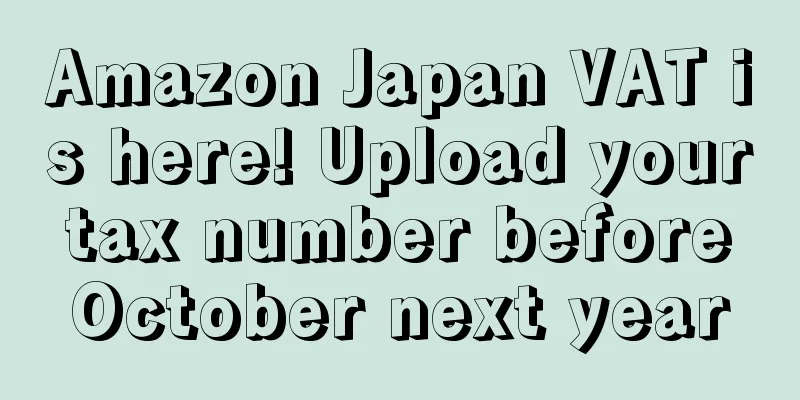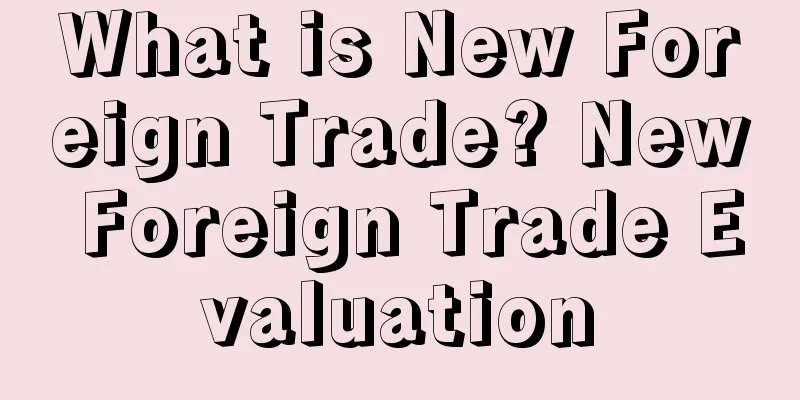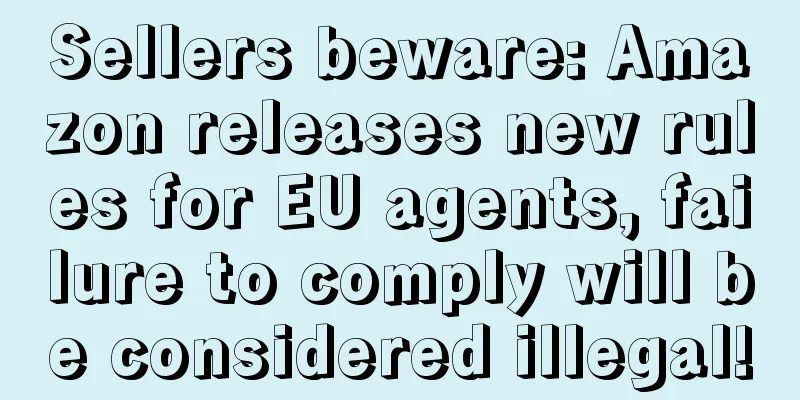Amazon Japan VAT is here! Upload your tax number before October next year

|
Yesterday, Amazon Japan released an important notice, stating that from October 1 next year, the Japan Consumption Tax Compliance Invoice Retention System (JCT) issued by the Japanese government will officially take effect. Sellers selling on Amazon Japan must register their tax numbers in accordance with regulations and upload them to the backend. The JCT policy requires sellers on e-commerce platforms to provide corresponding JCT tax numbers. Consumers can use the seller's JCT tax number to apply for tax deductions after purchasing products. Amazon's current requirement for sellers is that they must upload the tax number before October 1 next year. As for invoices, Amazon can automatically generate them for consumers to download, similar to Europe's VCS service. Unlike VAT, the tax levied by JCT is consumption tax. When we talked about the Japanese site before, we mentioned that the Japanese site currently defaults to 10% consumption tax. That is to say, when sellers set the price, the Japanese site will directly determine it as a tax-inclusive price, and will automatically deduct the corresponding tax when calculating the profit after the transaction. Therefore, sellers do not need to transmit the consumption tax number to sell goods, and the 10% deduction is applied anyway. The Japanese tax reform this time is actually to enforce the retention of invoices, so that buyers who need tax deductions can use invoices to deduct their own taxes. Generally, this deduction project is used by enterprises and sole proprietorship customers, and has little to do with ordinary consumers. Therefore, the significance of the Japanese JCT tax reform this time is more about tax compliance similar to VAT. Like VAT, this tax reform in Japan also defines the scope of sellers who meet the requirements and need to upload JCT tax numbers. Japan Consumption Tax JCT Tax Number Registration Scope The JCT tax number is a tax number issued by the Japanese tax authorities to the applicant company. When any of the following conditions are met, the seller needs to become a JCT tax entity and is obliged to register the tax number and pay taxes in accordance with regulations: ●The seller's taxable sales during the base period exceeded 10 million yen. ● The seller's taxable sales in the current base period did not exceed 10 million yen, but its taxable sales in the first half of the previous base year exceeded 10 million yen. ●The seller’s registered capital is 10 million yen or more. There is a clearer picture that you can look at to understand which of the above situations require JCT registration. The official explanation of the base period is that the base period is divided according to different types of sellers. If the seller is a sole proprietorship, the base year is from January to December of the natural year. If it is an ordinary company, the base year depends on the country of registration of the company. For Japanese companies, the base year is usually from April to March of the following year. The base year for Chinese companies is still from January to December. To summarize, if you are a seller with annual sales of more than 10 million yen, then you are definitely within the scope of registering a JCT tax number. If you did not have it last year, but have more than 10 million in the first half of this year, you are still within the scope. Sellers who have never had 10 million in annual sales are no longer within the scope of JCT. Note that this does not mean that these sellers do not need to pay consumption tax, but that they do not need to register a JCT tax number. Consumption tax will still be withheld according to the old rules. Moreover, these sellers who do not need to register a JCT tax number cannot implement the tax reform function (automatically providing invoices for corporate buyers to deduct taxes). |
Recommend
What is Shenzhen Caspian Finance and Taxation Technology Co., Ltd.? Shenzhen Caspian Finance and Taxation Technology Co., Ltd. Review
Shenzhen Lihai Finance and Taxation Technology Co....
[DNY123 Cross-border Morning News] Zalora releases Southeast Asia trend report, Amazon holds e-commerce conference in Vietnam
Tuesday, December 8 《DNY123》>>>Cross-bord...
What is Amazon Hijacking? Amazon Hijacking Review
Amazon follow-selling is a way of selling by shari...
What is Listing? Listing Review
Listing is to upload product information to the se...
What is Amazon Category Review Invoice? Amazon Category Review Invoice Review
Amazon category review invoices (copies of invoice...
Nearly 400,000 products were recalled! Involving multiple platforms such as Amazon and Target!
<span data-shimo-docs="[[20,"获悉,据外媒报道,近日美国...
A bug was discovered in Amazon's backend! Flash sales were inexplicably cancelled!
In the past two days, many sellers have reported ...
What is Zhengyu Cross-border? Zhengyu Cross-border Review
Fujian Zhengyu Cross-border E-commerce Co., Ltd. i...
There is a shortage of truck drivers in the United States! Walmart raises annual salary to $110,000 to recruit high-paying drivers!
<span data-shimo-docs="[[20,"获悉,",&qu...
How to determine the specific cause of copyright infringement
In the actual operation process, the risk of infr...
76,000 new competitors! Starting a business is too difficult, are you still persisting...
The latest news says that China has added more tha...
How to appeal if a customer complains that a product on Amazon is not genuine
Because most sellers generally do not require sup...
Amazon workers strike again on Prime Day
Written in front On October 14, the E-Commerce Ne...
A good start for product selection: 10 unique products with great potential in 2020
It is said that cross-border e-commerce depends 7...









